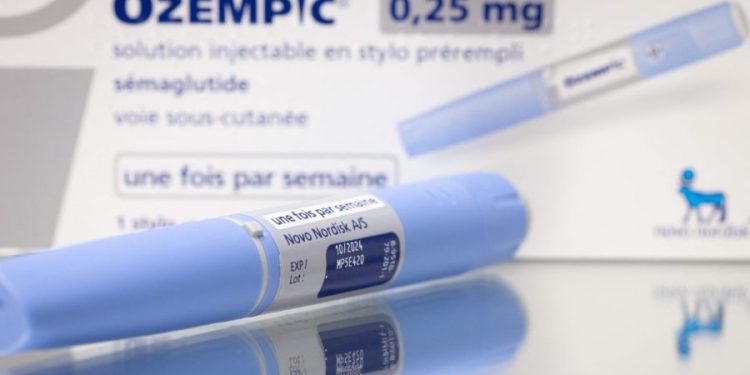A Louisiana woman sued the manufacturers of popular weight loss drugs Ozempic and Mounjaro on Wednesday, alleging that the drug makers failed to warn patients about the risk of severe gastrointestinal problems.
The lawsuit claims that Novo Nordisk and Eli Lilly, the respective manufacturers of Ozempic and Mounjaro, “downplayed the severity of the gastrointestinal events” caused by their medications, such as gastroparesis, or stomach paralysis, and gastroenteritis, or stomach inflammation.
Jaclyn Bjorklund, 44, took Ozempic for more than a year before switching to Mounjaro in July and suffered from “severe gastrointestinal events,” including severe vomiting, stomach pain, gastrointestinal burning, hospitalization, and the loss of teeth from excessive vomiting, according to the lawsuit.
While the labels for both medications note that they delay gastric emptying and can cause a variety of stomach problems — including nausea, vomiting, diarrhea, abdominal pain and constipation — they do not explicitly warn of gastroparesis as a risk.
The lawsuit accuses Novo Nordisk and Eli Lilly of being aware of an association between medications like Ozempic and Mounjaro and severe gastrointestinal issues and choosing to ignore and not disclose this to patients.
As a result, the lawsuit alleged Bjorklund “was and still is caused to suffer from severe gastrointestinal issues, as well as other severe and personal injuries which are permanent and lasting in nature, physical pain, and mental anguish.”
Ozempic and Mounjaro, which were developed to manage blood sugar levels in adults with Type 2 diabetes, have recently grown in popularity for their off-label use for weight loss.
A spokesperson for Novo Nordisk said in a statement that gastrointestinal events are “well-known side effects” of this class of medications and the majority of Ozempic’s gastrointestinal side effects are “mild to moderate in severity and of short duration.”
“Patient safety is of utmost importance to Novo Nordisk,” the spokesperson said, adding, “We are continuously monitoring the safety profile of our products and collaborate closely with authorities to ensure patient safety, including adequate information on gastrointestinal side effects in the label.”
An Eli Lilly spokesperson similarly said in a statement that patient safety is the company’s “top priority,” noting that they “actively engage in monitoring, evaluating and reporting safety information for all our medicines.”
— Updated 9:44 p.m.















